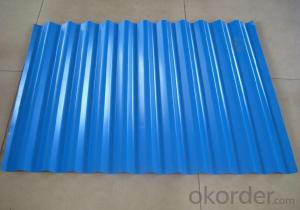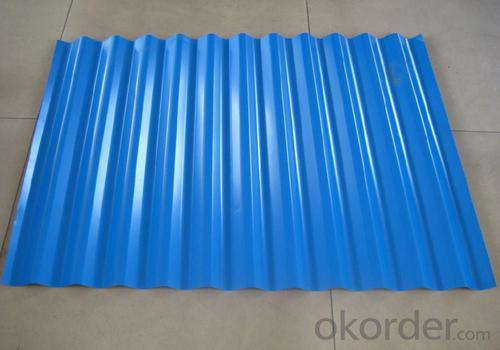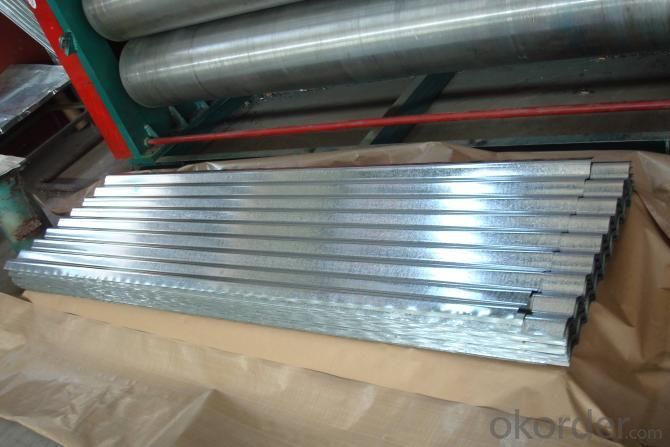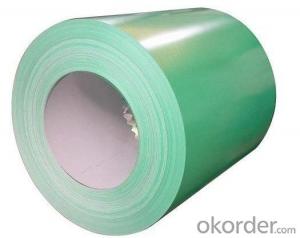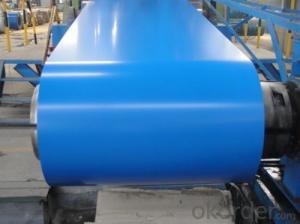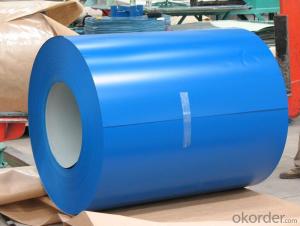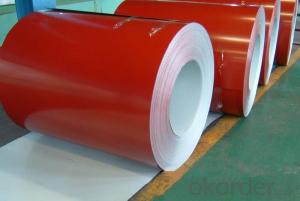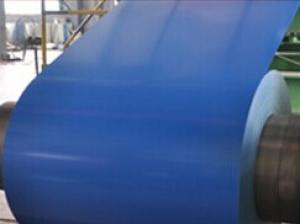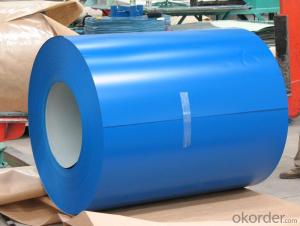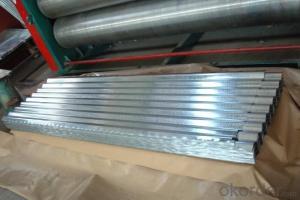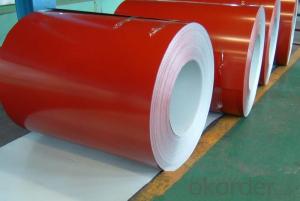Pre-Painted Galvanized/Aluzinc Steel Coil--Any Color in Good Quality
- Loading Port:
- China main port
- Payment Terms:
- TT OR LC
- Min Order Qty:
- 50 m.t.
- Supply Capability:
- 10000 m.t./month
OKorder Service Pledge
OKorder Financial Service
You Might Also Like
1. Pre-Painted Galvanized/Aluzinc Steel Coil--Any Color in Good Quality
With GI as base material, after pretreatment (degrease and chemical treatment ) and liquid dope with several layers of color, then after firing and cooling, finally the plate steel is called pre-painted galvanized (aluzinc) steel.
2.Main Features of the Pre-Painted Galvanized/Aluzinc Steel Coil:
• Smooth and flat surface
• Workability, durability
• Excellent heat resistance performance
• High strength
• Good visual effect
3.Pre-Painted Galvanized/Aluzinc Steel Coil Images
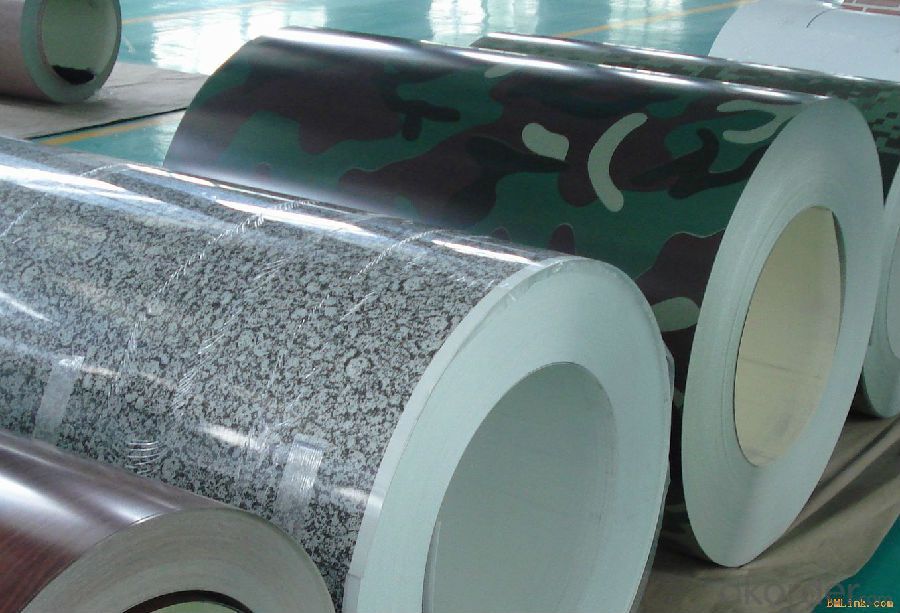
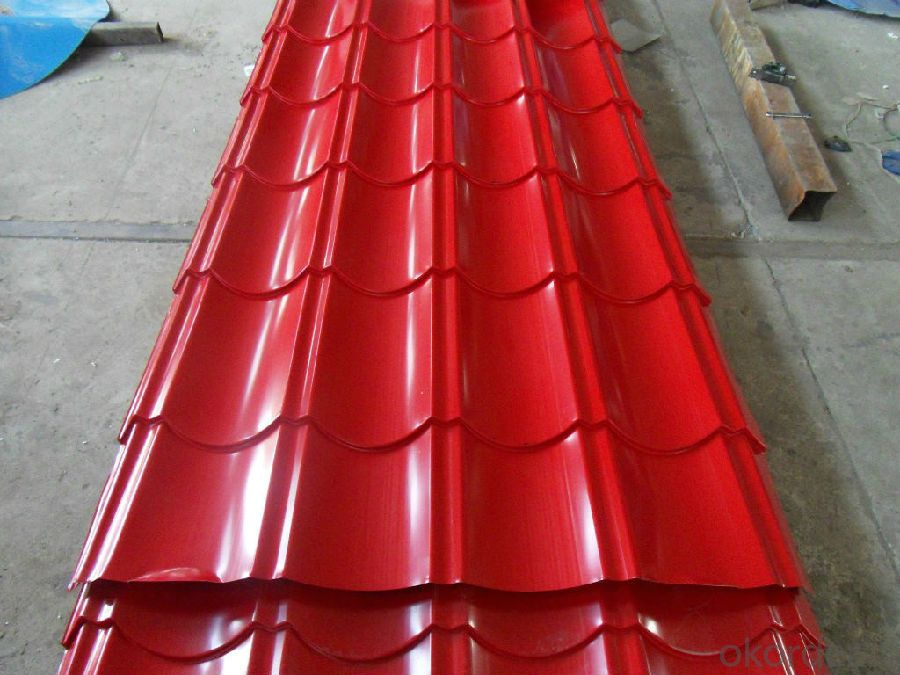
4.Pre-Painted Galvanized/Aluzinc Steel Coil Specification
Standard: AISI, ASTM, BS, DIN, GB, JIS
Grade: DX51D, DX52D
Thickness: 0.17-2.0mm
Application: Boiler Plate
Width: 20-1250mm
Thickness: 0.13-4.0mm
width: 20-1250mm
zinc coating: 40-180g/m2
printing thickness: top side: 20+/-5 microns, back side: 5-7 microns
color: all RAL color
coil weight: 4-7 tons
5.FAQ of Pre-Painted Galvanized/Aluzinc Steel Coil
1. How to guarantee the quality of the products?
We have established the international advanced quality management system,every link from raw material to final product we have strict quality test;We resolutely put an end to unqualified products flowing into the market.
2. How long can we receive the product after purchase?
Usually within thirty working days after receiving buyer’s advance payment or LC. We will arrange the factory manufacturing as soon as possible. The cargo readiness usually takes 15-25 days, but the shipment will depend on the vessel situation.
- Q: So i downloaded Broken Steel DLC for Fallout 3 for the 360. My guy is on the level where you have to activate the purifier and when i beat it. It was the normal ending that brought me back to the main menu. My friend said you have to find some guy to talk to but i don't think thats it. Please Help. P.S. i never got and conformation in-game about the download but its under the download sub menu at the main menu.
- after you've downloaded broken steel, while playing in game you should get a message saying, broken steel loaded, then you can make your way to the purifier and finish of the col. and activate it, after-wards you will have to sit through the end movie, which I felt was longer than the original, then the broken steel part will start, which I wont ruin. If your still having problems, go into your DLC and delete broken steel, and re-install it.
- Q: What is the type of stainless steel used in knifes.
- There okorder / Stainless steel doesn't make the best knife blade. It doesn't sharpen as sharp or hold its edge as well. High carbon steel is better, but it rusts and discolors very easily so it's not as popular. A new thing (actually not new but popular these days) is to use a 'sandwich' of high carbon steel between two layers of stainless. So the actual edge is high carbon steel but the blade looks like stainless. I have some kitchen knives made this way (kind of expensive) and I love them. This same technique was used in Japanese katanas, swords used by samurai warriors.
- Q: What are the limitations of using steel coils in certain applications?
- One limitation of using steel coils in certain applications is their susceptibility to corrosion. Steel coils can rust when exposed to moisture or harsh environments, which can affect their structural integrity and performance. Additionally, steel coils can be heavy and bulky, making them less suitable for applications that require lightweight materials or intricate designs. Finally, steel coils may not be suitable for applications that require specific electrical or thermal conductivity properties, as steel is not the most conductive material in these aspects.
- Q: PLS tell me all Foam Steel Characteristics and use?Thanks
- Foam steel [often steel foam] is used in applications that require light weight but high rigidity and strength. Watertight doors on modern ships are often made of foam steel. Pressure doors on aircraft are possible uses. As we keep striving for lighter weights in cars, foam steel might have some useful applications in bodies. There is a technical paper online that is in .pdf format that has a good discussion of the process and characteristics of foam steel.
- Q: I don't know it is low alloy steel or high allow steel or medium carbon steel
- Pretty sure it's low alloy steel, it's harder to smelt as it can contain up to 50% of other elements.
- Q: i would like to know of any companies who buy shredded scrap steel
- We are one of the biggest steel mills in Asia. Under our group, we have steel mills in Thailand and Bangladesh. On the monthly basis, we purchase steel scrap HMS1/2 80:20 and the shredded ISRI210/211, ISRI211 by bulk and 20' container to Thailand and Bangladesh. Due to the limitation of our existing shredded steel scrap supplier, we need to get more supply of the shredded. Please contact us or offer us of ISRI 210/211 or ISRI211 CFR Chittagong, Bangladesh with 500mt - 2000mt per shipment by 20' container. If any questions, please feel free to contact us.
- Q: How are steel coils used in the manufacturing of machinery?
- Steel coils are used in the manufacturing of machinery as they serve as a primary material for various components such as gears, shafts, frames, and structural supports. These coils are typically cut, shaped, and welded to form intricate and durable parts that can withstand the demands of heavy-duty machinery. Additionally, the strength, versatility, and corrosion resistance of steel make it an ideal choice for machinery manufacturing, ensuring longevity and reliability in the final product.
- Q: Can steel coils be recoiled?
- Yes, steel coils can be recoiled. The process of recoiling involves rewinding the steel coil onto a different reel, typically to adjust the coil size or to improve its shape.
- Q: Can steel coils be stored in a humid environment?
- Steel coils can be stored in a humid environment, but it is not ideal. Humidity can cause steel coils to rust and corrode, leading to potential damage or degradation of the steel. It is recommended to store steel coils in a dry and well-ventilated area to protect them from the negative effects of humidity.
- Q: steel welding with ms steel iron
- Welding austenitic stainless steels to carbon and low alloy steels are established methods in the process and construction industries. Dissimilar metal welds involving stainless steels can be done using most full fusion weld methods, including TIG (Tungsten Inert Gas) and MIG (Metal Inert Gas). Weld procedures using filler (consumable) enable better control of joint corrosion resistance and mechanical properties. In selecting the weld filler, the joint is considered as being stainless, rather than the carbon steel. Over-alloyed fillers are used to avoid dilution of the alloying elements in the fusion zone of the parent stainless steel.
Send your message to us
Pre-Painted Galvanized/Aluzinc Steel Coil--Any Color in Good Quality
- Loading Port:
- China main port
- Payment Terms:
- TT OR LC
- Min Order Qty:
- 50 m.t.
- Supply Capability:
- 10000 m.t./month
OKorder Service Pledge
OKorder Financial Service
Similar products
Hot products
Hot Searches
Related keywords
